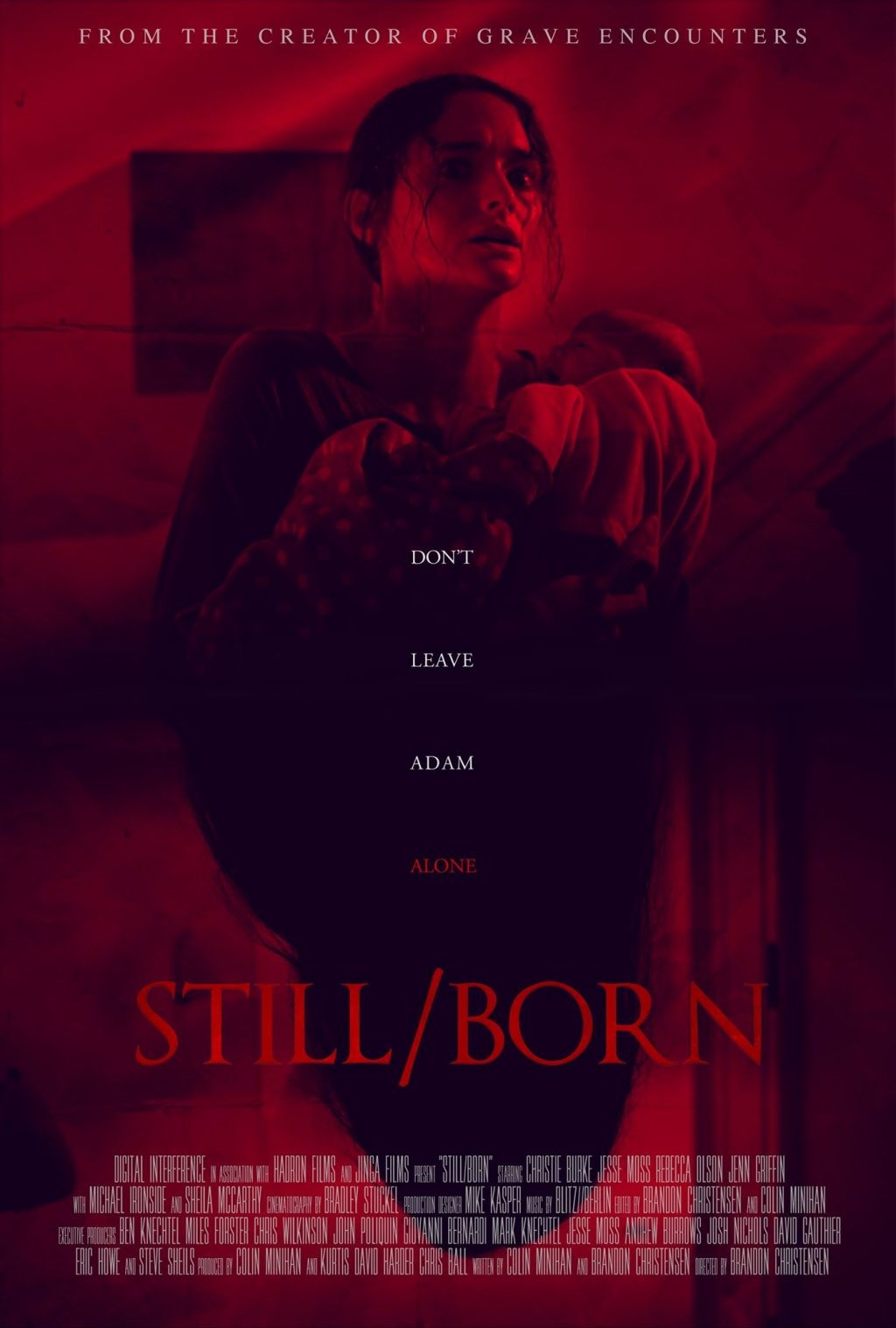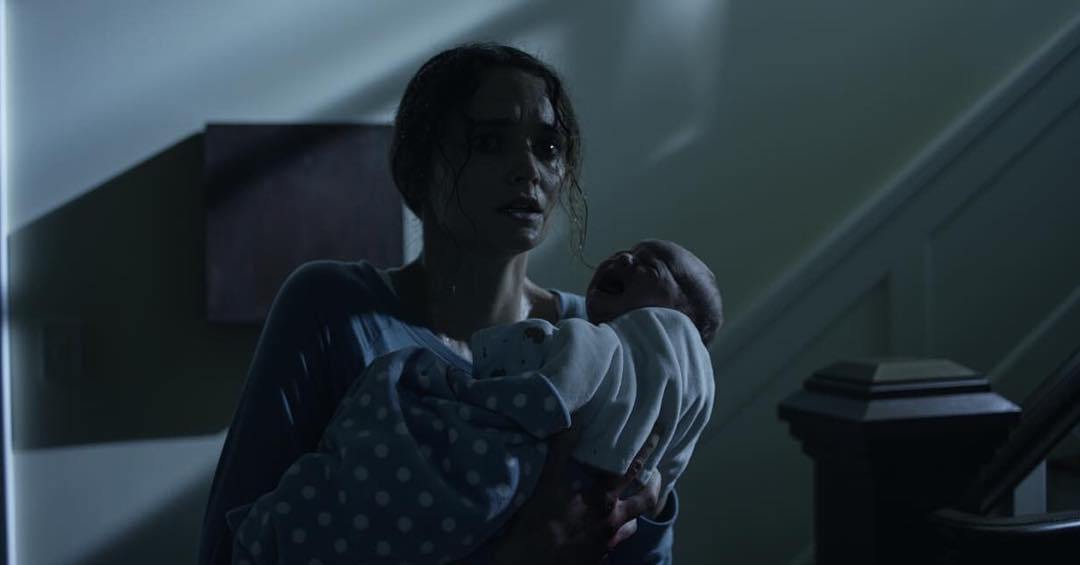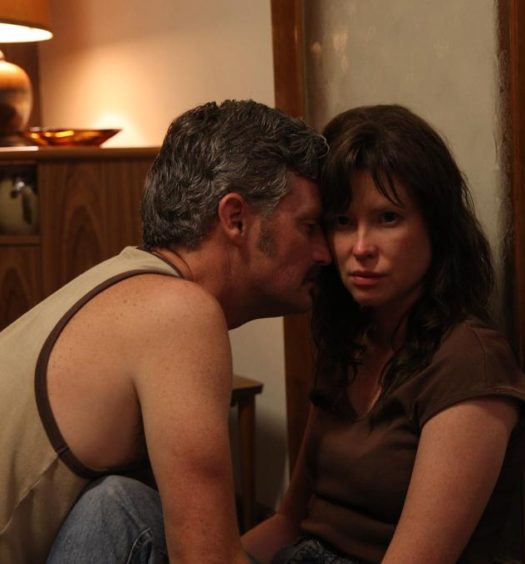The winner of the jury prize for “scariest film” at the inaugural Overlook Film Festival went to a horror film about a familiar topic; childbirth. More specifically, about postpartum depression and being a new mother. When Mary loses one of her twins during childbirth, she struggles with caring for the surviving newborn and coping with the loss of the other. Yet, the lines between reality and nightmare becomes blurred when Mary suspects something sinister may be after her living baby.
The first half of the film is rife with mounting suspense, and genuine scares that will keep the viewer at the edge of their seats.
Written by Colin Minihan (Grave Encounters) and directed by Brandon Christensen, those looking for a through and through jump scare fest will find much to revel in here. New mother Mary (Christie Burke) and her super supportive husband Jack (Jesse Moss) have just moved in to an extravagant home, and soon enough Jack is whisked away on a business trip, leaving Mary alone with her son in an unfamiliar setting. Before long, things are going bump in the night and Mary suspects she may not be alone after all. The first half of the film is rife with mounting suspense, and genuine scares that will keep the viewer at the edge of their seats. Or at least squirming uncomfortably. Even when the scares seem recycled, like at least one or two involving a baby monitor, they still work like a charm. Which is a testament to Christensen’s direction.
However, the narrative tries very hard to establish Mary as an unreliable narrator. It begins subtly, with small moments that sees Mary’s devastation over her loss peak through, or a visit to a psychiatrist (Michael Ironside) to lay down some overt exposition meant either to misdirect or foreshadow. Eventually, Mary’s postpartum depression grows more obvious until it becomes full blown psychosis. Or at least, that’s what the narrative would like you to believe. Christensen and Minihan really want to make things ambiguous, for the audience to question if the terrifying entity that’s after Mary’s baby is real or just in her head.
As the plot works harder at forcing ambiguity, the scares work less and less until it gives way to predictability.
One flaw in their plan is that Christie Burke isn’t a strong enough actress for the material. She handles being terrified and tormented quite well, but the more deranged her character becomes, the more over the top her performance becomes. A moment in the climax meant to elicit tension instead summons unintentional laughs at Burke’s terrible line delivery. It’s not entirely her fault, though; the truth is that we know nothing about Mary. We know she suffers from postpartum depression, struggles with being a new mom, and that’s about it. Her lack of identity not only makes it more difficult to empathize with her, but it also makes it difficult to navigate the decisions she makes and why.
There’s a strong concept at the film’s center. It’s a well shot film that’s easy to understand why the festival jury awarded a prize; it manages to land its jump scares with ease. At least for the first half. As fantastic as a good spooky flick is, it still needs an engaging plot and characters worth rooting for to retain interest. As the plot works harder at forcing ambiguity, the scares work less and less until it gives way to predictability. As always, it’s the loss of what could have been that disappoints, but even still, Christensen shows a lot of potential for future attempts in the genre.
Still/Born premiered at the Overlook Film Festival.
Still/Born [Overlook Film Festival Review]
Mixed
































January 9, 2020
[…] their eight-year-old son’s imaginary friend. Brandon Christensen’s followup to Still/Born [Review] shows that his terrifying debut was no fluke. Z is a good old-fashioned scary movie featuring a […]